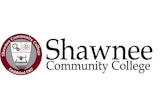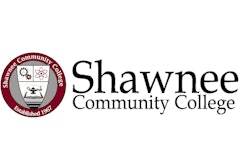For the past decade, Dr. Ervin Griffin has served as president and CEO of Halifax Community College. Although Weldon, North Carolina, has been a majority-minority town for some time, the college hadn’t seen a Black president in 40 years before Griffin assumed the position, according to the institution.
To the community, Griffin’s presence was significant, he says. However, “I appreciate it more now than I did when I first got here because I understand the context better.”
In Chicago, recently, Halifax was honored with the 2016 AACC Advancing Diversity award by the American Association of Community Colleges for Griffin’s work to make “considerable changes to both the educational and cultural environment of HCC and throughout the region,” HCC’s Board Chair Michael Felt said.
More specifically, the AACC pointed out that the university has invested $250,000 “in unique one-of-a-kind diversity and multicultural programs” such as a partnership with the U.S. Postal Service to host an African-American stamp dedication event. Halifax was the first community college in North Carolina to do so.
In 2006, Griffin brought to Halifax a wealth of experience in community college education, rooted in his role as a coordinator at Southwest Virginia Community College dating back to 1979.
“I suppose I could have been in another arena, but once I got into community college education, I realized that it fit who I was and the way I wanted to help people,” he says. “And it also allows me to help people where they are and take them as far as they want to go.”
This spirit is likely cemented in his upbringing. While his parents did not pursue education beyond high school, they wanted all nine of their children to go further, Griffin says. “They both had a very abiding respect in the power of education.”
Growing up in Coalwood, West Virginia, his academic path was guided by a longing to present himself in a professional manner. “My daddy and them were in the coal mines and they came home with dust and everything on them,” Griffin says. “They made good money, but that was not what I wanted to do.”
While he admired preachers who wore suits every day, Griffin looked toward a career in education because of his respect for one of his elementary school teachers. In addition, his uncle James served as his math instructor in high school, so “teaching was in my blood,” he says.
At Bluefield State College, Griffin earned a bachelor’s in secondary education in 1971.
His ultimate goal was to be a college president, “but I didn’t say it out loud until later on,” he says. With that in mind and being surrounded by Black role models—both administrators and fraternity brothers—Griffin realized that he must continue his academic pursuits “and get those experiences necessary to move into the highest level of administration.”
Griffin attended Western Illinois University, earning a master’s in counseling and college student personnel services in 1974.
He then obtained a doctorate degree in community college education from Virginia Tech in 1980.
Throughout his career, Griffin learned that true education begins after graduation.
“I don’t remember having any classes in visioning and the process of bringing people together to share that vision,” he says. “They have them now, but they didn’t then and that was something that I had to learn on the fly.”
They also didn’t have classes in replacing college roofs and air conditioning, Griffin continues, “and they didn’t talk about having to go to dorms at 12:00 [a.m.] at night to make sure students’ water wasn’t leaking.
You can learn the theory of administration in the classroom, but in real life you have to be flexible enough to apply what you have to situations.”
The key, he says, is to plan for things that may never happen. “I say thank God it doesn’t happen, but as an administrator you have to be able to see around the corner before you get there so you can anticipate some of these things happening.”
Griffin’s longest tenure was spent at West Virginia State Community College. Over the course of more than 17 years, he worked to climb the ranks from vice president for student affairs to provost and chief operating officer and, eventually, president of the university.
Early on in his time there, he worked to bring technology to the campus—an innovative undertaking in the 1990s. By installing computer centers in residence halls, they were transformed into places for both living and learning. Counselors and tutors were also staffed in living quarters to provide students with additional assistance.
“We always tried to reach out to our students because students have issues beyond what’s going on in the classroom,” Griffin says. “Sometimes life gets in the way and you always have to be aware of those types of things. All through my career, I’ve always tried to remember that, because I remember my own experiences and I know, if students can get a balance, they can be successful in their academic careers.”
At Halifax, Griffin promotes generational success. In a signature program, associate degree graduates can be hooded by any one of their choosing.
In addition to his weekly office hours, Griffin also hosts at least two forums each semester “to see how students are doing and to give them an opportunity to say anything they need to say to me and my staff.”
What has also been consistent throughout his career, Griffin notes, is that “I’ve always tried to make sure that I leave a place better than I found it. I always like the next person who follows me to have a glass almost full so they can come in and do some things and build on what I’ve done.”









